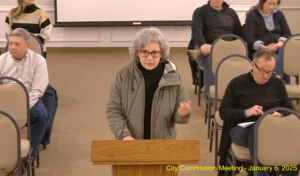One of my top priorities is ensuring that the City makes spending decisions in a fiscally responsible way, guided by meaningful community input on how we set priorities for investments.
At the January 6, 2025 City Commission meeting, I raised concerns about the Capital Improvements Program (CIP) section of the budget. That section described the statutory framework for capital planning, including the Planning Commission’s role. However, this is misleading because the City had formally exempted the Planning Commission from the responsibility outlined in Public Act 33 of 2008 (MCL 125.3865), which requires planning commissions to prepare and submit an annual CIP to the City Commission.
This exemption is significant. The Planning Commission process is typically where the public has an opportunity to weigh in on priorities before major spending decisions are finalized. It is where community members can ask questions, share concerns, and help shape long-term planning decisions that affect infrastructure, parks, facilities, and overall quality of life. By removing that step, the City has effectively eliminated one of the few structured ways for residents to participate in setting spending priorities.
At that meeting, I urged the City to review how it develops its CIP by using the Redevelopment Ready Communities (RRC) Capital Improvements Plan Guide as a reference. This state resource outlines best practices for creating a plan that is transparent, goal-driven, and rooted in public participation.
Why Capital Improvement Planning Matters
A well-structured capital plan ensures that projects are evaluated together, funds are used efficiently, and decisions align with community goals. It promotes transparency, supports economic development, and can open doors to state and federal grants. These are exactly the outcomes we want for Plymouth: efficient use of resources, alignment with long-term goals, and a clear understanding of where tax dollars are going. You can view the RRC Guide by clicking HERE.
A Scalable Model for Plymouth
The RRC guide acknowledges that every community has different needs and capacities, and the process should be tailored accordingly. I agree that Plymouth does not need a complicated process, but using the guide as a reference could help us strengthen our current approach and bring transparency back into how our capital priorities are set.
Our city is at its best when residents are informed, involved, and part of the process. Giving citizens a voice in setting spending priorities is more than good governance. It is essential to keeping Plymouth the thoughtful, well-managed community we all value.
Click HERE to see the recording of the January 6, 2025 City Commission meeting. My comments begin 3 minutes and 25 seconds into the video.

Leave a Reply